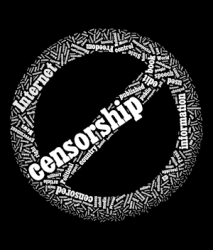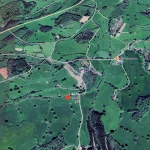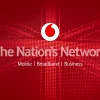UPDATE BBC Find UK ISP Filters Fail to Block Porn and Catch Legit Websites

An investigation by the BBC’s Newsnight programme has unsurprisingly discovered that the new generation of network-level Internet filtering (censorship) technologies, which are being adopted by all of the major broadband ISPs, often catch legitimate websites in their net and can also fail to block porn. Big SHOCK? Nope.
The Government has pushed hard for the big Internet Service Providers (i.e. BT, TalkTalk, Sky Broadband and Virgin Media) to introduce its new Active Choice Plus system via a voluntary code of conduct (here), which is designed to help combat online porn and other “adult content” deemed to be “harmful” to children.
Advertisement
The system will give both new and existing customers an “enforced” choice about whether or not to enable censorship of their Internet connections (though the “Yes” box will be pre-ticked), which also includes the ability to select from a variety of different categories (e.g. porn, self-harm, social networking).
However, much to the surprise of absolutely nobody with any technical knowledge, the BBC’s study found that TalkTalk’s filter failed to block 7% of the 68 pornographic websites in their sample but Sky’s managed 99%.
Similarly both ISPs and their filters also caught legitimate websites too, with Sky blocking six sites for tackling “porn-addiction” and TalkTalk’s blocking the award-winning British sex education site BishUK.com and the Edinburgh Women’s Rape and Sexual Abuse Centre (note: both were classed as “pornographic” by the filter).
Justin Hancock, Owner of BishUK, said:
“It’s really frustrating because I’m trying to provide a sex education site for young people and it’s hard enough directing young people to good quality information on the internet.”
Various other sex education sites were also blocked, including one that’s taught to 81,000 American children. BT was also found to block sites including Sexual Health Scotland, Doncaster Domestic Abuse Helpline and Reducing The Risk, a site which tackles domestic abuse.
Advertisement
Readers of ISPreview.co.uk will note that we’ve been highlighting problems like this for several years and all three of the above ISPs similarly admit that no Internet filtering technology can ever be 100% perfect. In addition to poor categorisation of content, technical errors can also result in wrongful blocking and many children will have little trouble circumventing the skin-deep censorship systems.
At present the block lists themselves remain in the control of third-party commercial companies (e.g. Symantec) and there appears to be no easy appeals process for having a website removed if it’s been wrongfully censored. Separately eyes have also been raised over some of the categories that ISPs include in their various filters, with for example BT choosing to include “Fashion and Beauty” sites (here) under its “strict” category (though this doesn’t seem to block Amazon or Advertising companies with related products).
The Government has previously promised to ensure that legitimate sites are not blocked but quite how they achieve that, given the technologies inherent fallibility, remains unclear and we won’t see proper oversight without it being enshrine in complex legislation; this would carry its own problems for smaller ISPs (e.g. cost). If the filters just focused on porn then this wouldn’t be such an issue but the signs of mission creep are already there. At least you can turn the filtering off, provided you can remember where to do it.
In the meantime a lot of legitimate online businesses could face financial harm due to overzealous filters, which they might not even be aware of until it’s too late to complain about.
Advertisement
UPDATE 21st December 2013
Meanwhile TalkTalk have been criticised after it blocked the website of LGBT+ Liberal Democrats and BT’s filter has been slammed for including an option to block “gay and lesbian lifestyle” sites, as well as sexual health information. Naturally some parents might wish to sweep issues such as sexuality under the carpet but funnily enough that doesn’t stop a person from being gay.
Mark is a professional technology writer, IT consultant and computer engineer from Dorset (England), he also founded ISPreview in 1999 and enjoys analysing the latest telecoms and broadband developments. Find me on X (Twitter), Mastodon, Facebook, BlueSky, Threads.net and Linkedin.
« UPD Ofcom UK Propose Faster Line Repairs and Installs from BT Openreach






















































Comments are closed